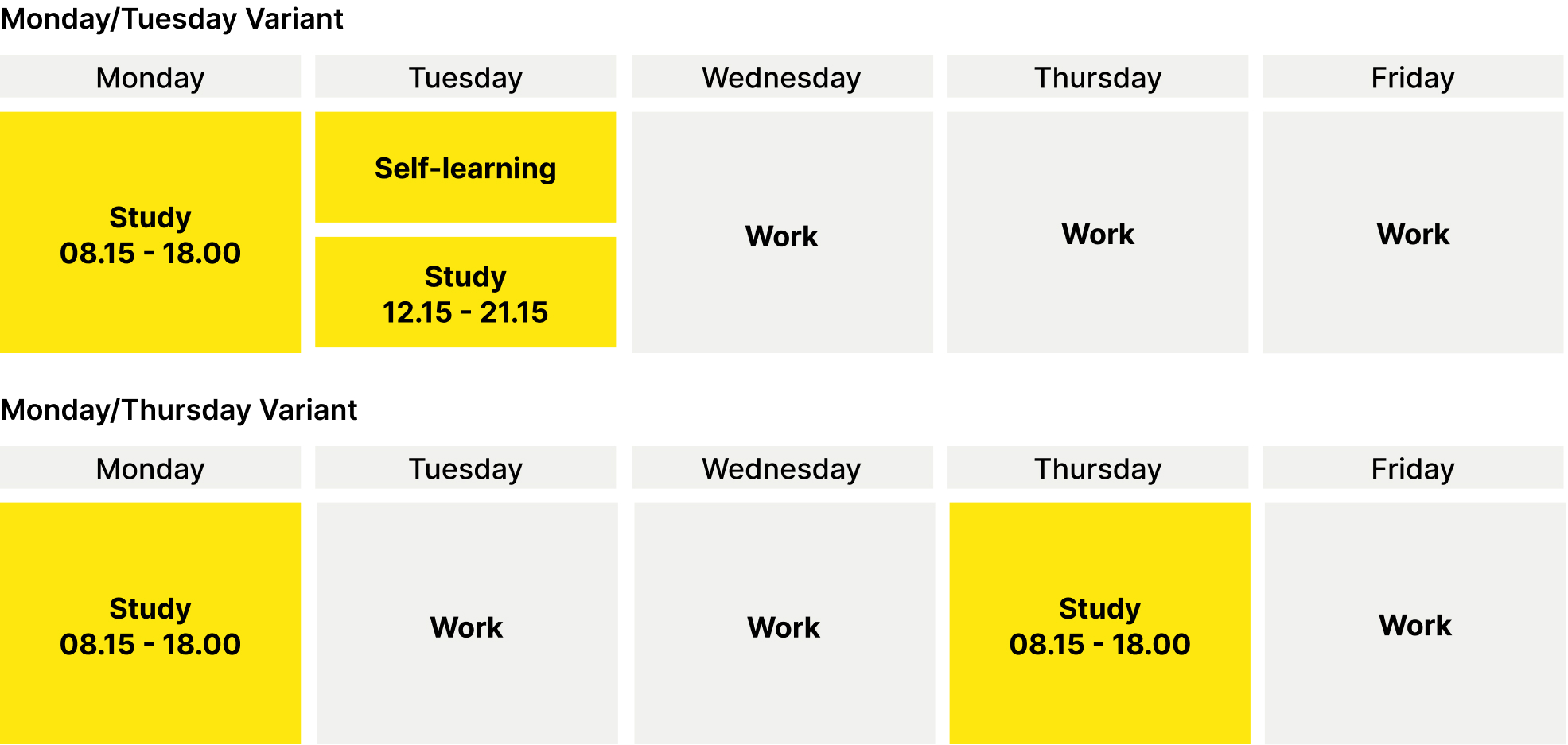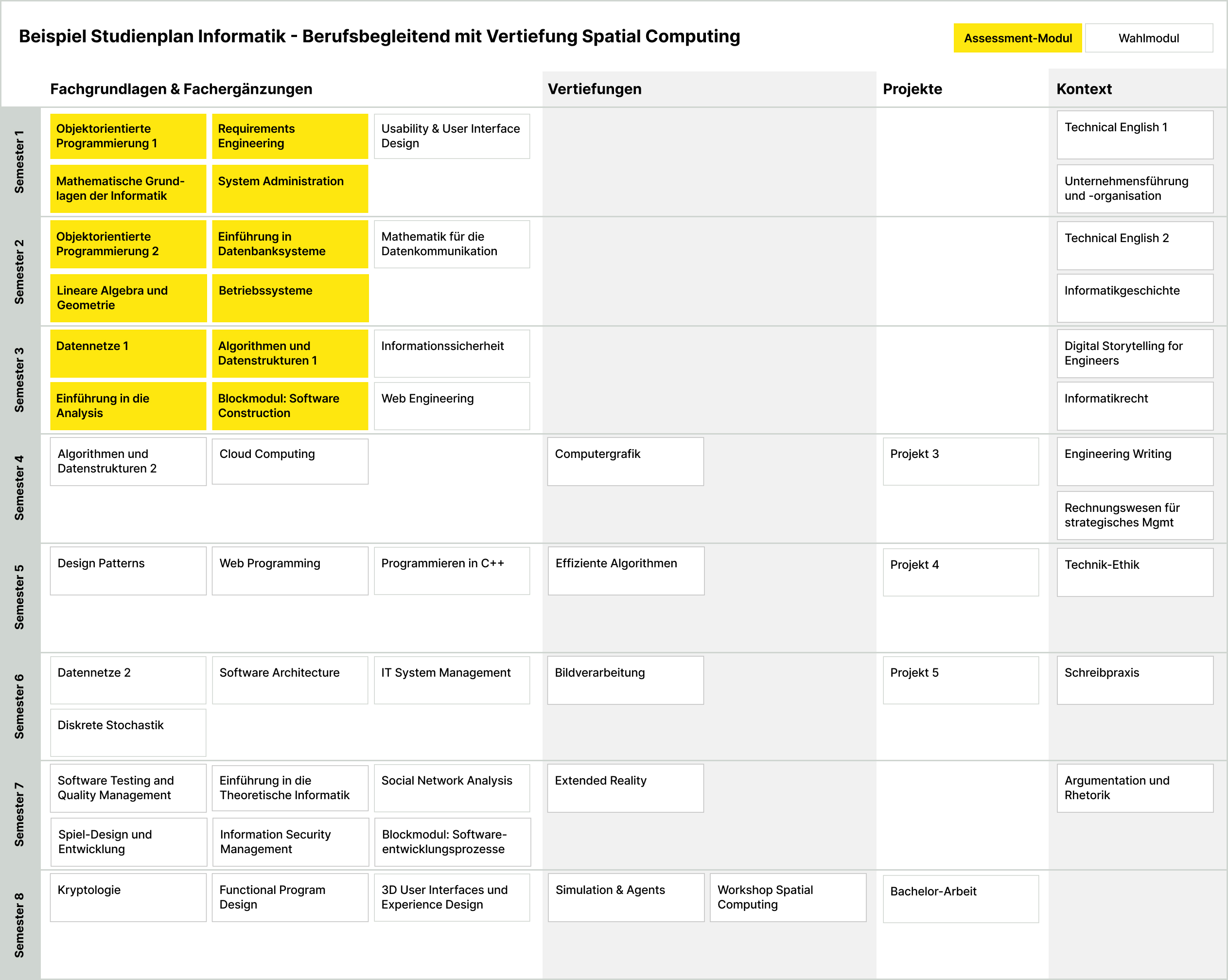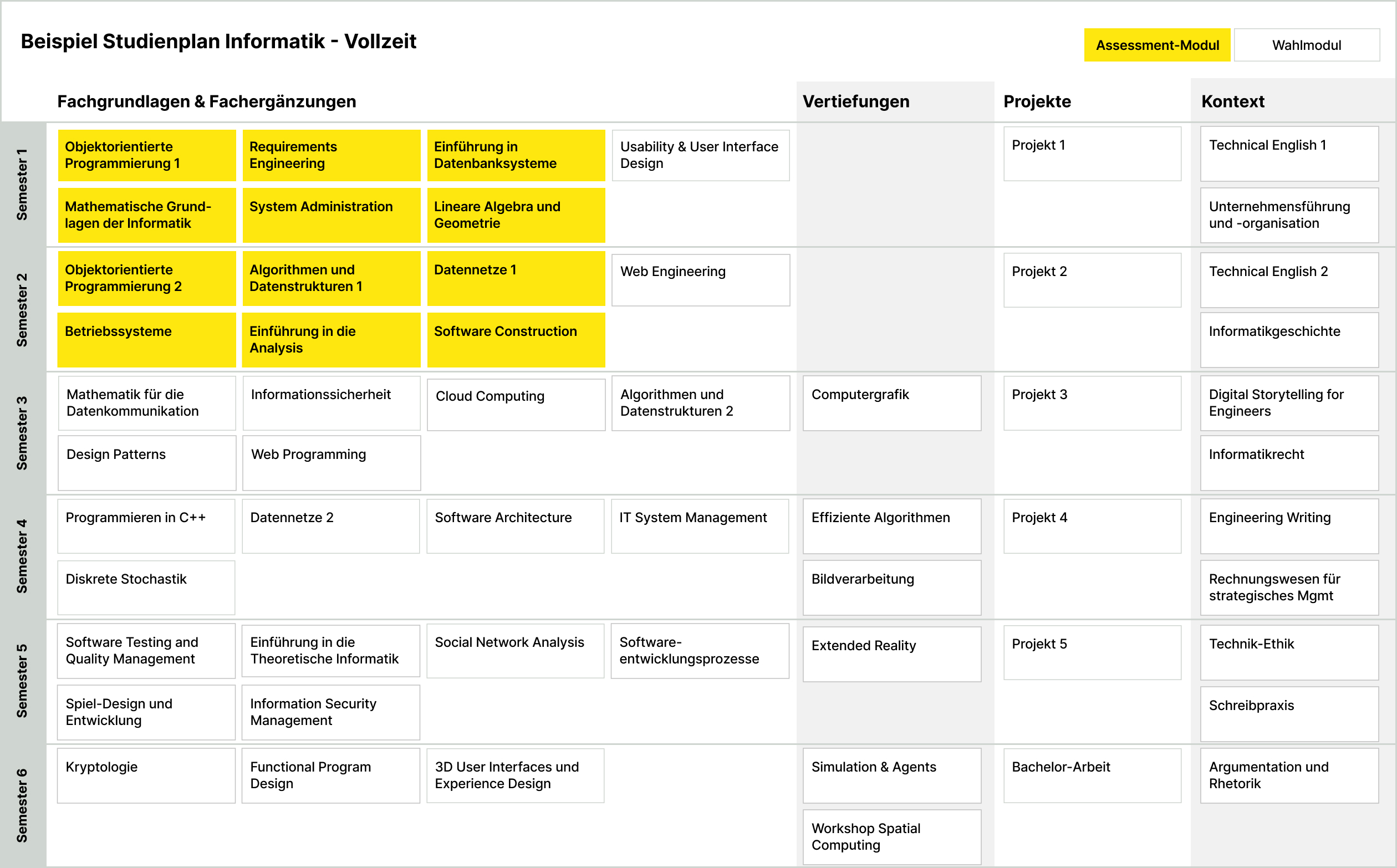What does the program entail?
The curriculum covers all essential topics in computer science. The program is modularly structured and allows for individual specialization.
The computer science education includes...
- Computer science with a focus on software engineering
- Theoretical foundations and mathematics
- Computer science and society
- English and intercultural communication
In your third year, you can choose one of four specializations to develop expertise in a professionally relevant field.
Most modules in the computer science program are taught by faculty from one of the four Institutes of the School of Computer Science: Institute for Data Science, Institute for Interactive Technologies, and Institute for Mobile and Distributed Systems.
The mathematics modules are taught by faculty from the Institute of Mathematics and Natural Sciences from the School of Engineering and Environment. You will attend context modules together with students from the School of Engineering and Environment. These modules are offered by faculty from the Institute of Humanities and Social Sciences from the School of Engineering and environment.
An overview of all modules can be found using this following link:
In your first year, you will develop competencies in core subjects, forming the foundation for your further studies. For this reason, you must complete several basic courses in the first semesters. This part is called the Assessment.
Apart from the Assessment's mandatory basic courses, you can customize your studies picking modules according to your interests. The modules are divided into basic subject knowledge, subject complements, and subject specializations.
The basic subject knowledge is the foundation of your computer science expertise. You can choose the subject complements according to your interests. Additionally, you can select one of four specialization tracks (DevOps, ICT System Management, Spatial Computing, or Web Engineering) to complete your computer science degree with a corresponding specialization.
Another important component of your studies are the projects you implement with industry partners. You will complete one project each semester. The final semester project is at the same time your Bachelor's thesis. Your studies are complemented with context subjects covering society, business, and languages.



